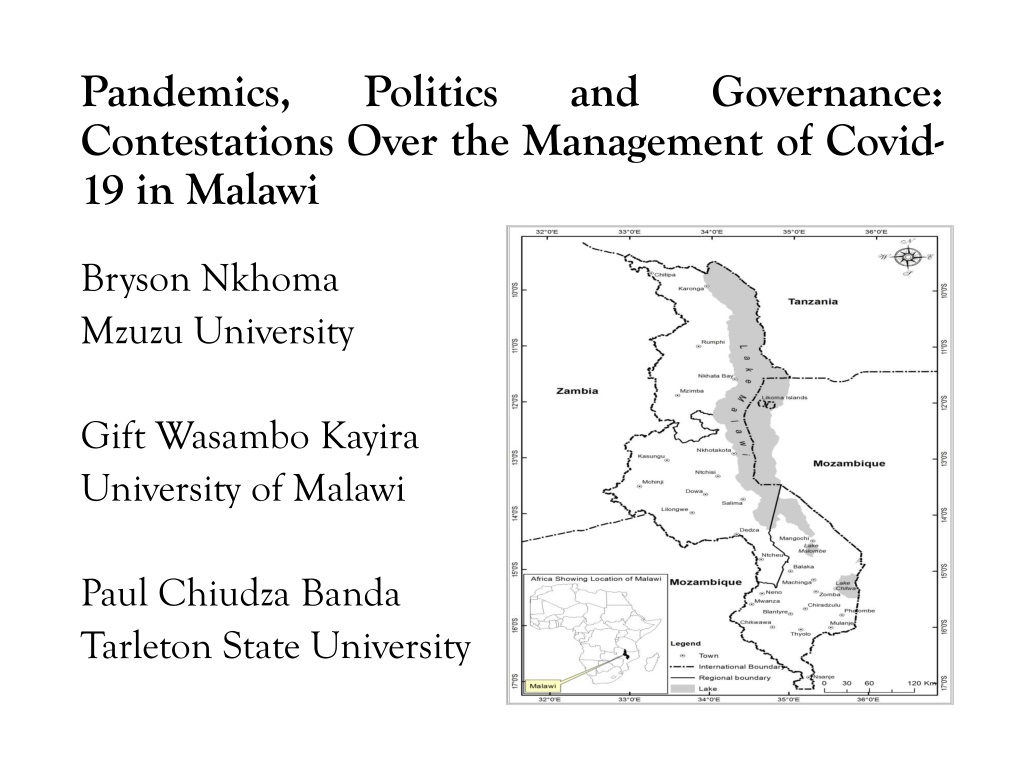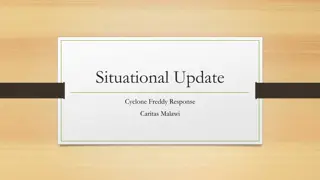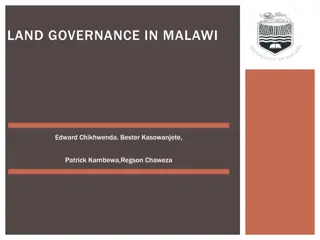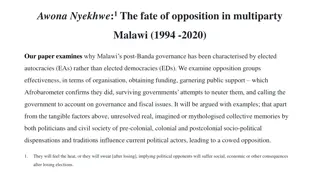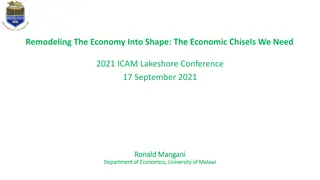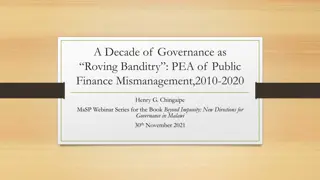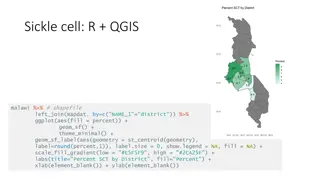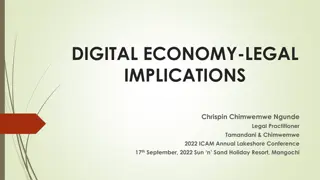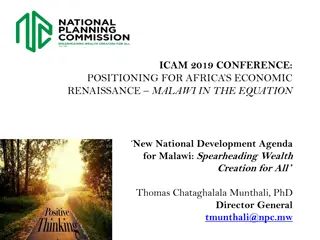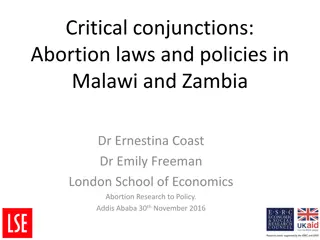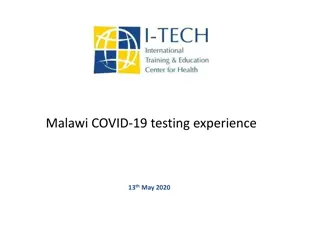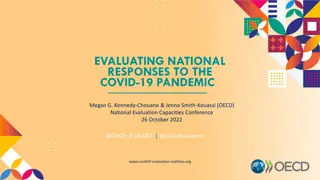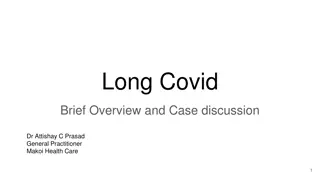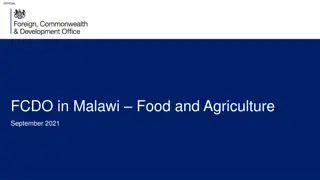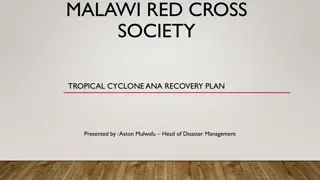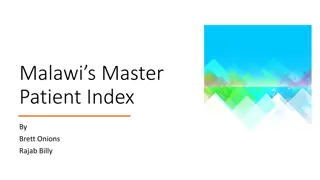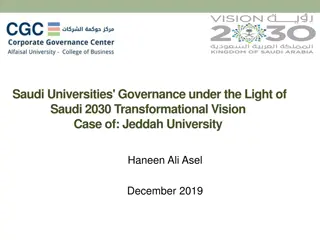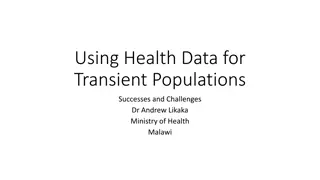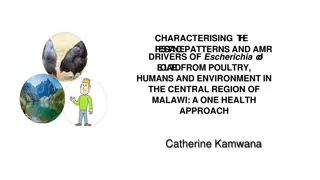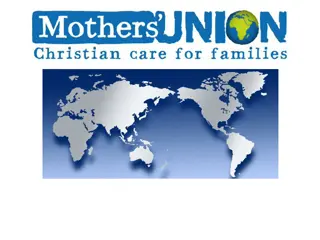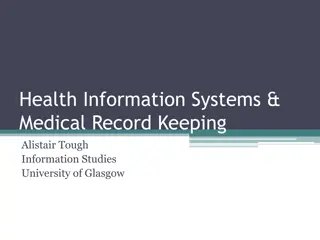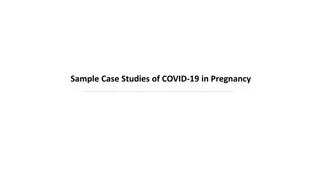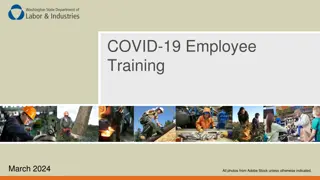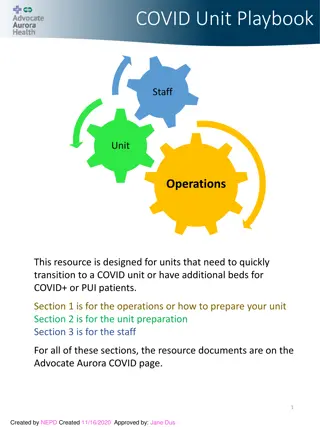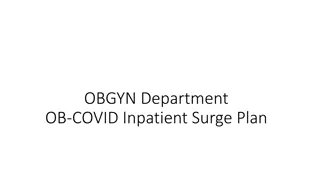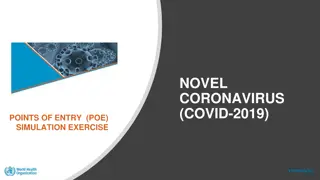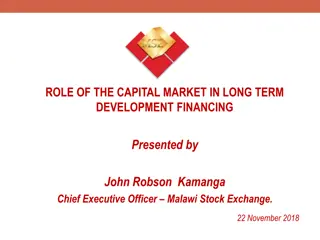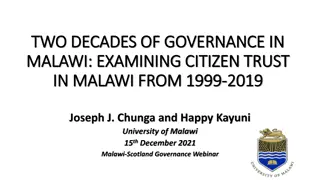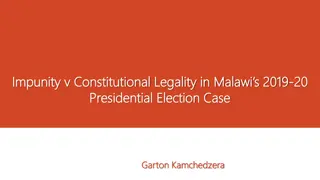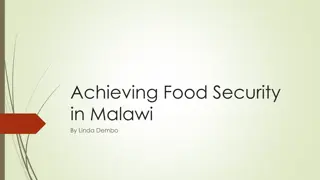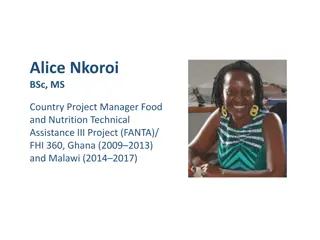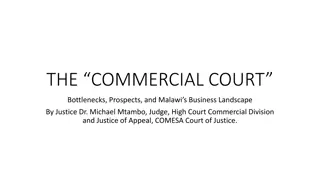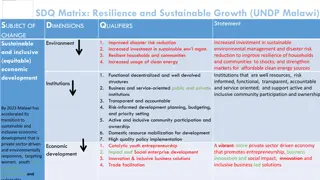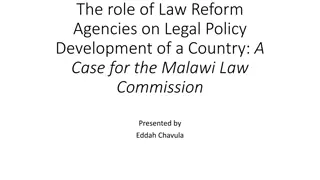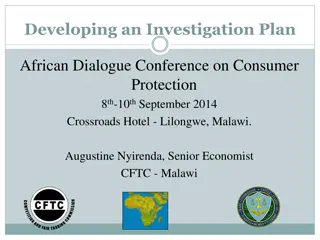Contestations Over Covid-19 Management in Malawi: Insights into Governance
Delve into the narrative of the Covid-19 challenges in Malawi from February to July 2020, highlighting the controversies and frustrations faced by various interest groups, including citizens, healthcare workers, and professionals. Explore the implications of these contestations on the state of governance and public health interventions in the country.
Download Presentation

Please find below an Image/Link to download the presentation.
The content on the website is provided AS IS for your information and personal use only. It may not be sold, licensed, or shared on other websites without obtaining consent from the author. Download presentation by click this link. If you encounter any issues during the download, it is possible that the publisher has removed the file from their server.
E N D
Presentation Transcript
Pandemics, Contestations Over the Management of Covid- 19 in Malawi Politics and Governance: Bryson Nkhoma Mzuzu University Gift Wasambo Kayira University of Malawi Paul Chiudza Banda Tarleton State University
Chapter is about Covid-19 and how it reveals the state of governance in Malawi between February and July 2020. Located within a deeper history of pandemics: Swine Flu; Smallpox, HIV and AIDS, Covid-19 Fraught with contestations that have complicated public health interventions
Starting point: o The story of a Court Injunction the HRDC obtained against a lockdown decision on 17 April 2020. o A series of events led to this: 11 March 2020: WHO declared Covid-19 as a global pandemic. 9 days later: State of Disaster Declared 9 April, 2020: Ministry of Health Gazetted the Public Health (Corona Virus Prevention, Containment, and Management) Rules. 15 April, 2020: Country-wide lockdown announced 17 April, 2020: HRDC obtained an injunction Henceforth, the country was drawn in a series of contestations
Various interest groups took issue with the government Street traders Religious leaders Private school owners Students, parents and guardians, Public health workers Professionals Politicians Rural dwellers etc What do these contestations over Covid-19 reveal about the Malawian state and matters of governance?
We project three arguments 1. The contestations expose citizens' frustration about a state that has done little to contain existing historical problems. oThe pandemic exposed deep-seated socio-political and economic ills worrying Malawians oConsider concerns of public health workers: Worried that the 509 health care centres across the country had limited staff; funding; drug shortages; ambulances; PPEs;
Their risk allowances were very low: MK1000/month (USD1.3) for the lowest paid; MK1800/month (USD2.4) for the highest paid; Only 25 intensive care unit beds against 18 million people; 28 nurses and two physicians per 100,000 people. Hospitals were death-traps for health care workers
2. The contestations complicate notions of an overbearing and autonomous state that can willy-nilly project its power on the citizenry. oWe question notions of a Weberian state or what Crawford Young once called a Bula Matari State (a Congolese phrase meaning a stone crasher).
o We show that even the not-so-privileged majorities in the society have a voice that goes beyond electoral politics. They can strike back as they make claims over matters of governance. o The case of rural dwellers: snatching dead bodies from public health officials; HRDC-organised demonstrations and wider local participation
3. The contestations reveal state s failure to cultivate and tap on public opinion. oHere, we adopt Jurgen Harbemas' conceptualisation of "public opinion" and how it plays out in Public Sphere" o In most countries there was a strong public opinion in favour of lockdowns in both open and closed societies.
Why? Support mechanisms; Mostly announced before declarations of lockdowns; Societies agreed to temporarily shelve matters of human rights in the interest of all.
oIn Malawi, Covid-19 containment measures were to a larger extent against the public opinion. We project two explanations: 1. State failure to properly consult all concerned groups of the society 2. The contradictions in the societal groups that took issues with the state on lockdown measures Diverse interest groups presented contradictory concerns that created an impasse, making decision difficult to make.
ostudents, parents and guardians, public health workers, private school owners oProfessionals, street traders and workers oPoliticians Contestations made decision-making a daunting task to achieve.
Conclusion oWhile highlighting the interaction between the state and other stakeholders in the face of Covid-19 pandemic, we also pay attention to the very composition of the stakeholders in question, pointing out the diverse views they expressed, which were at best irreconcilable. oWe argue that to contain a pandemic in such a country, a state must be dynamic and sophisticated, listening and assertive at the same time. oHowever, as legitimate as holding the government accountable is, compliance was complicated by the politics of the time as well as prevailing divergent opinions and stakeholders interests.
